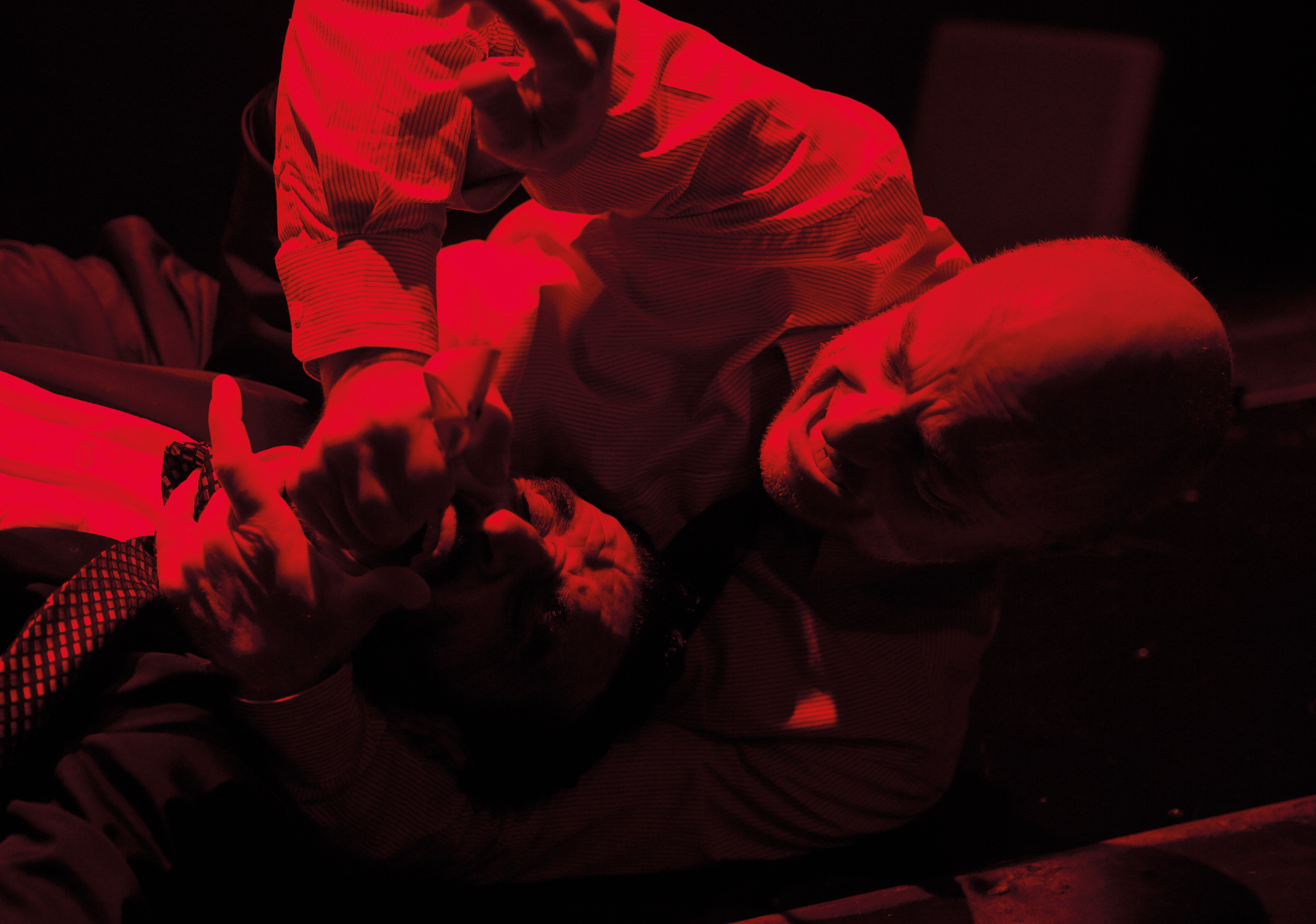A night with the Belarus Free Theatre is bound to be a challenging, thought-provoking night. The remarkable intensity of their politically-charged work has inspired social change (and ire) in their home country, and now Natalia Kaliada and Nicolai Khalezin, have turned their attention to address the “Great Australian Silence” in their new show, Trustees, which is currently playing as part of the Melbourne International Arts Festival.
As the audience takes their seats in the 360-degree theatre, the five performers – Hazem Shammas, Tammy Anderson, Niharika Senapati, Natasha Herbert, and Daniel Schlusser – are already on stage and in our faces. They roam about, putting questions to theatre-goers with a quiet intensity. The tone is set…then instantly broken as the show officially opens with a skit presented in cheesy television debate style, and an audience poll on government funding for the arts.
The transition is jarring, but then that’s the point. Trustees doesn’t want its audience to be any more comfortable in their understanding of the performance than they are in the themes being addressed.
Over the next 100 minutes, each character takes their turn to address an element of the Great Australian Silence, from the refugee crisis to indigenous issues. These moments are intercut sometimes with scenes of orgiastic violence, other times with attempts by one character or another to foster peace within the group.
It’s chaotic, and it mostly works to great impact. When it doesn’t, it’s because Trustees occasionally feels more like a lecture than a performance piece. While such direct approach to addressing themes might have worked in countries like Belarus, where such atrocities are kept out of the public eye, Australia’s problem is different. Here, people remain ill-informed not due to censorship, but by choice.
Trustees needed to go deeper. It needed not just to shock its audience with its extreme, explicit content, but to suggest – if not outright propose – a solution to the problems it highlights. That’s not necessarily the responsibility of artists, but without seeding a resolution, only so much change can be effected.
Where the production makes up for this oversight is in its splendid, powerful visuals. The mood set by Romanie Harper’s ingenious set, Jethro Woodward’s sound design, and the lighting of Amelia Lever-Davidson is superb. I couldn’t help but to compare it to Darren Aronofsky’s apocalyptic parable Mother!, both in style and function.
Trustees ends with the expectation that audience members will leave the theatre, raise their voices, and speak out against the silence. To not only acknowledge the issues at hand, but to do something about them. Without pointing them in a promising direction though, it’s unlikely to succeed on that front. Nevertheless, Trustees succeeds in so much else that it is well worth attending.
—
Trustees plays as part of the Melbourne International Arts Festival, October 3rd – 21st.

